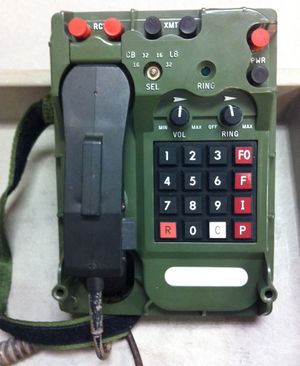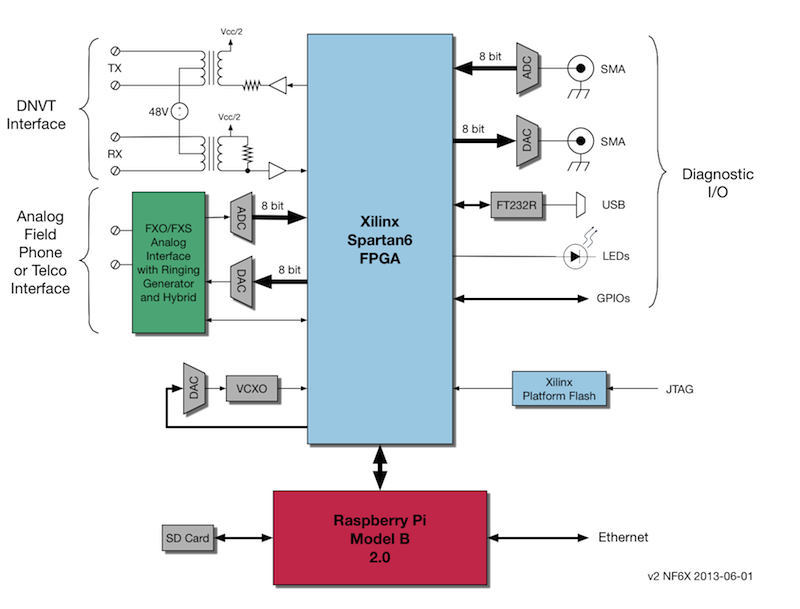DNVT2IP
DNVT2IP is an open-source hardware + software project released under
GNU Public License version 3. Its primary goal is to provide an adapter to interface military surplus Digital Nonsecure Voice Terminals (DNVTs) to Internet Protocol (IP) networks, specifically for use as Voice Over Internet Protocol (VoIP) phones using Session Initiation Protocol (SIP). Supported DNVTs are planned to include:
The primary source repository for the project is located at:
This page is the primary documentation site for the project, with its original home located at:
The hardware portion of this project shall consist of four major components:
- Custom-designed interface board.
- Raspberry Pi Model B v. 2.0 board to provide controlling processor and network interface.
- An enclosure to protect the assembly.
- External power supply. (5V "wall wart" with USB plug, connected to Raspberry Pi? 12V wall wart or battery connected to interface board? 24V support? PoE in possible future Raspberry Pi version?)
The custom-designed interface board shall inclue the following major features:
- Electrical interface to the DNVT with suitable filtering, line driver and receiver, galvanic isolation, and fault protection.
- Isolated 48VDC power supply to power connected DNVT over 4-wire interface. TBD: Do both pairs need power supplied, or just one pair?
- Additional regulator(s) if needed.
- Field-Programmable Gate Array (FPGA) to implement low-level signaling, code detection and generation, codecs, and control/data interfaces to the Raspberry Pi board. Probably a Xilinx Spartan 6 family device?
First Prototype/Development Board
The first version of the DNVT2IP custom interface board, called DNVT2IP-proto1, will be a platform for initial development, debugging, and testing. It will include a lot of diagnostic features which probably would not be present in later board versions, and probably only 2-4 boards will be assembled. Here is a first draft of its block diagram:

